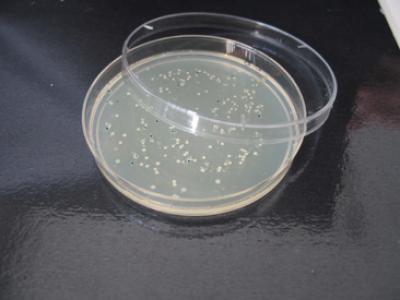A University of Granada researcher has a new hypothesis concerning why bacteria seem to becoming increasingly more resistant to antibiotics.
Bacteria are incredibly versatile - they have been found in some of the most extreme conditions on the planet, and it may be just evolution in action. In this instance, Mohammed Bakkali, a scientist in the Genetics Department at the Faculty of Science of the UGR,
believes that bacteria that are non-resistant to antibiotics acquire resistance 'accidentally' because they take up the DNA of others that are resistant, due to the stress to which they are subjected.
Like anything else, too much of a good thing can be bad and overuse and misuse of antibiotics has exacerbated resistance problems. Whereas we mistakenly banned the use of DDT due to misuse, antibiotics are not going away, so researchers have spent decades examining when, how and why bacteria take up DNA from other antibiotic-resistant bacteria, thus becoming resistant. The answers as to when there is DNA uptake (in unfavorable or stressful circumstances) and as to how the bacteria take it up are clear, but, up until now, "nobody has pinpointed the reason why bacteria ingest this genetic material" Bakkali notes.

Bacterial colonies growing in a hazardous substrate. Credit: University of Granada
In his article, Mohammed Bakkali argues that bacteria do not look for DNA to incorporate (they appear not to 'want' this DNA, since they are constantly degrading it; in other words, breaking it up) and that this uptake is a chance event and the sub-product of a type of bacterial motility that is part of its response to the stress that the bacteria may be subjected to.
The indiscriminate use of antibiotics "not only selects the resistant bacteria, but also means that the bacteria take up more DNA, due to their increased motility in response to the stress that the antibiotic subjects them to".
The result is that the stress caused by the antibiotic itself induces the uptake of genetic material that can bring about resistance to the antibiotic by bacteria that, otherwise, would not have taken up that DNA nor become resistant to the antibiotic. Furthermore, this effect is strengthened by its lack of specificity, since it occurs both in the target pathogen and in other bacteria.
He says that when a bacterium takes up DNA from another antibiotic-resistantone (and which could have died due to another environmental factor), the bacterium that takes it up becomes resistant to that antibiotic.
"Thus, the bacteria can go on adding to their arsenal of resistance to antibiotics and end up being resistant to a wide range of them, such as is the case of the multi-resistant strain of a staphylococcus, called Staphylococcus aurius, which creates havoc in many operating theatres.
Published in Archives of Microbiology






Comments